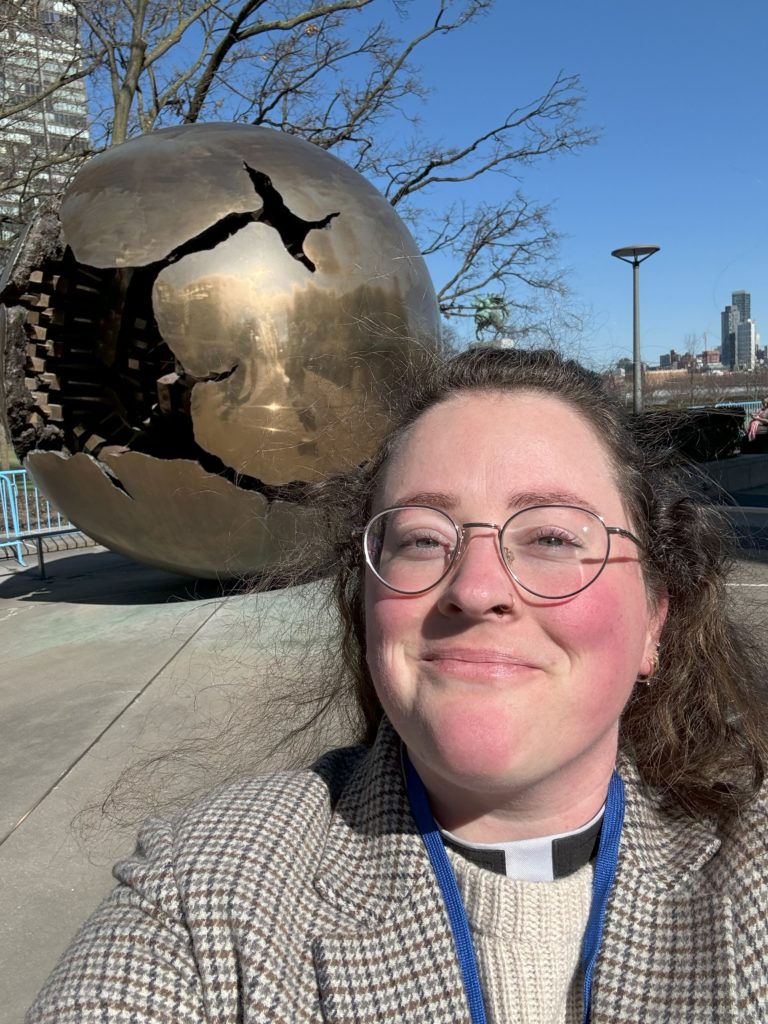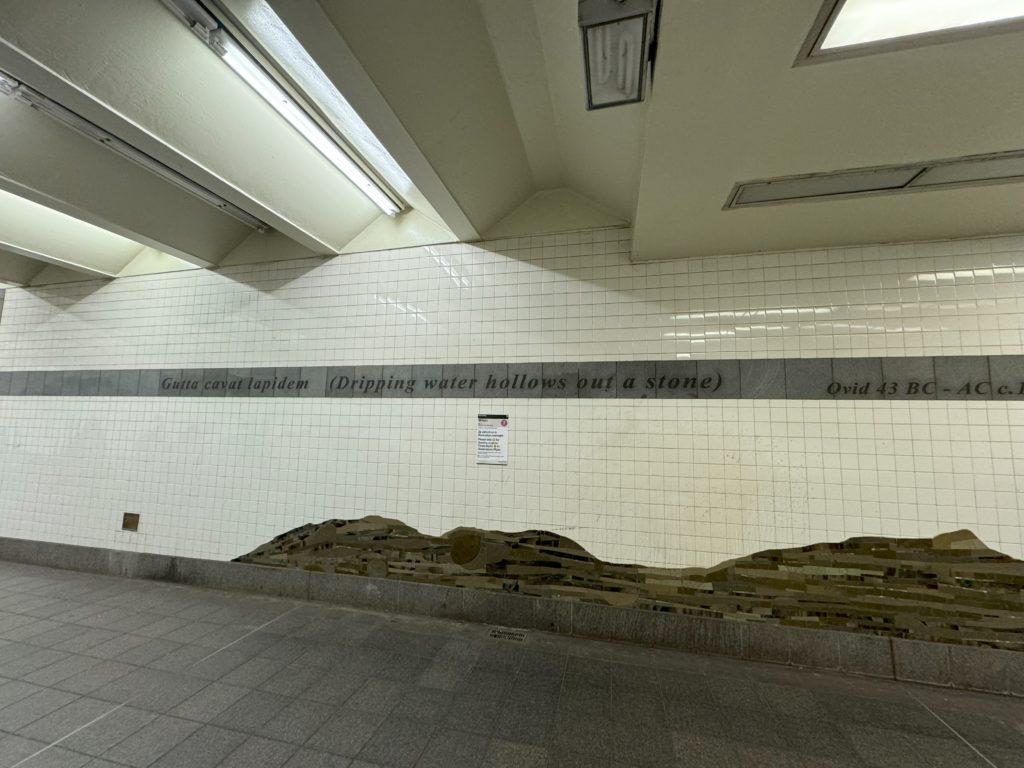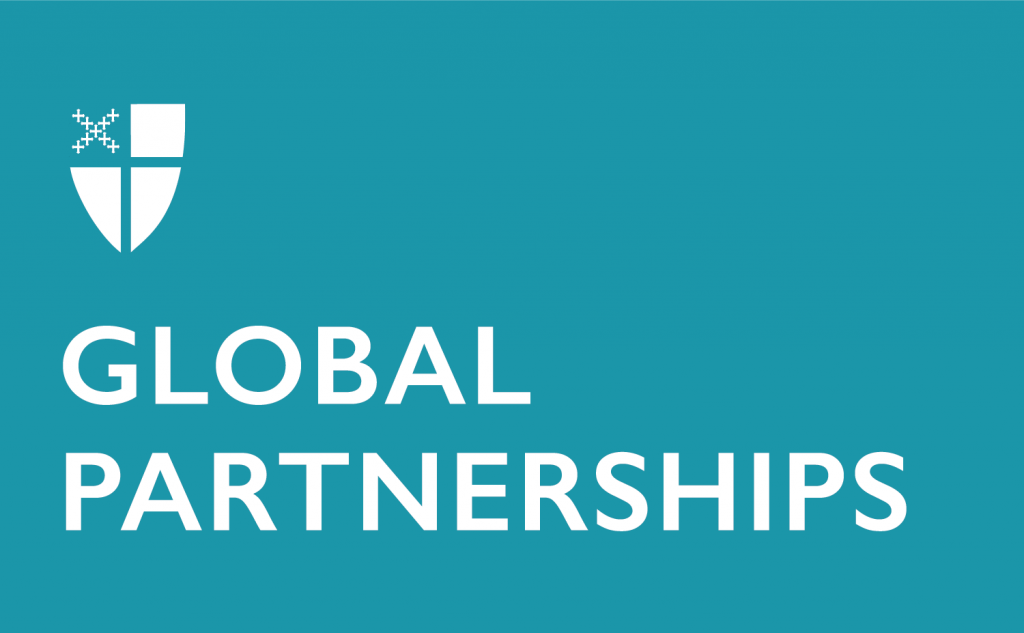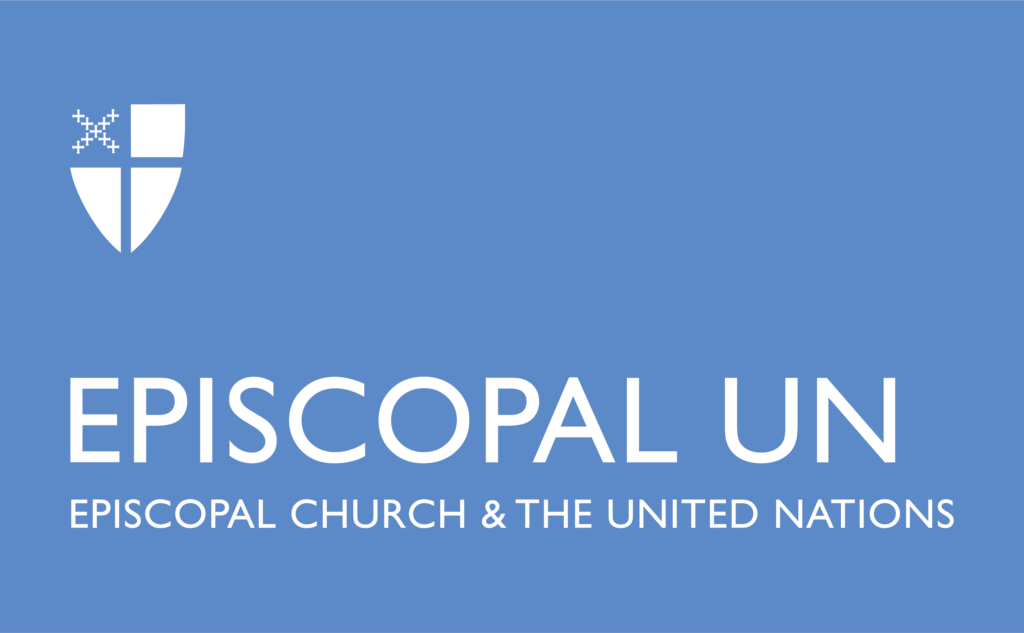At #CSW68: “And so, we drip”

By The Reverend Madeleine Rebouché, Diocese of Tennessee (Province IV)
To save some money from the exorbitant New York City hotel prices, I’ve been moving around the city over the two weeks of the United Nations Commission on the Status of Women 68, staying with friends and other church contacts. One morning I found myself on an unfamiliar subway route. I was clumsily navigating the dank tunnels to transfer trains when I noticed a series of quotes artfully etched into the tiles. The first one made me stop and turn back: “Gutta cavat lapidem (Dripping water hollows out a stone),” attributed to Roman Poet, Ovid 43 B.C. – A.D. 17.

The work of the United Nations may sound grand, but I think anyone involved would agree the proceedings tend to be tedious. Every day, the member states meet to negotiate a document that will outline the Agreed Conclusions of the Commission (if a conclusion can be agreed upon, which is not a guarantee). The language of the UNCSW draft outcome document slowly erodes under the pressure of compromise. As a Nongovernmental Organization delegate, it is easy to feel helpless as you watch the issues you care about most slip away.
The language put forth in the draft outcome document not only reflects the priorities of the member nations but is the culmination of the work of Commission on the Status of Women, the second largest gathering of the United Nations annually. So naturally, these negotiations are contentious. The Episcopal Church, along with other participating NGOs, submits a statement outlining our position on the year’s priority theme. One of the most dearly held and highly debated phrases in the broader negotiations is, “women and girls in all their diversity.” This language is already a compromise. The Episcopal Church’s statement explicitly states, “We affirm the call to empower women and girls in all their diversity, including transgender and non-binary persons,” (2/4). This language acknowledges the intersectional needs of women and girls in a modern context and advocates for the full inclusion of trans women and non-binary persons in a global conversation about the rights of women and girls. This language is urgent and vital.
Unfortunately, in the most recent version of the document, colloquially known as “Rev 2,” the phrase, “in all their diversity” has been removed. This isn’t necessarily a surprise, but remains a subject of great lament, not only among the Episcopal delegates, but also among many people following this work. Women’s liberation and empowerment must include all women and girls, in all their diversity, in our pursuit of God’s Kingdom on Earth as it is in Heaven. Our God is a God of abundance, not scarcity. There is always more than enough room, and in fact, crucial seats for our trans and non-binary siblings at the table and in the work of gender justice and equity. We gain nothing from their exclusion and so much through their partnership.
International consensus on any subject is fated to be fraught, if not impossible. And yet we, the faithful, will remain present at UNCSW. We will bear witness, make our priorities known, and lament the loss of progress. Just as lightly dripping water can hollow out a stone over time, we will continue to advocate for the rights of women and girls in all their diversity. Our prayers, presence, and advocacy will drip against the stubborn stone of international politics. And so, we drip.

About the author: The Reverend Madeleine Rebouché, Diocese of Tennessee (Province IV) grew up in Shreveport, LA. She graduated with a B.A. in Religion and Writing from Texas Christian University before moving to Colorado where she lived and worked with incarcerated teenagers. Madeleine graduated with her M.Div. in 2019 from Duke Divinity School, then moved to Nashville in 2020 to continue her theological studies at Vanderbilt Divinity School. She was ordained to the Priesthood in Western Louisiana in January 2021 and began serving at Christ Church Cathedral Nashville. Madeleine has worked as a chaplain in a women’s prison and at Duke University Hospital where she specialized in Pediatric Palliative Care. When she is not at church, you may find her and her yellow lab, Olive, on a paddle board or scooting around Nashville on her red moped.


